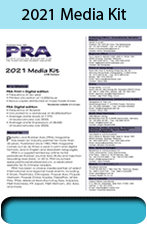India to ban single-use plastics by 2022

With India generating around 25,940 tonnes/day of plastic waste and around 9.46 million tonnes/year of plastic waste, according to the Central Pollution Control Board, the country is reeling in its plastic waste issues by phasing out single-use plastic items by 2022. Another point of issue is that of the amount of waste the country generates, around 60% is collected and recycled, while the rest is uncollected and littered in the environment.
Thus, in line with Prime Minister Narendra Modi’s call for India to eliminate single-use plastics (SUPs) by 2022, the Ministry of Environment, Forest and Climate Change (MoEFCC) has introduced a new set of guidelines - Plastic Waste Management Amendment Rules, 2021. This will replace the existing Plastic Waste Management Rule, 2016 (PWM Rules, 2016) that was amended in 2018. This is in line with India’s attempt to take a strong stand against plastics and plastic pollution, in the form of banning the sale and use of single-use plastics (SUPs).
The items that will be prohibited from use are SUP items that have low utility and high littering potential, and will be slowly phased by 2022.
The prohibition of the manufacture, import, stocking, distribution, sale and use of the following items, including polystyrene and expanded polystyrene, will come into force from 1 July 2022.
The items include earbuds with plastic sticks, plastic sticks for balloons, plastic flags, candy sticks, ice-cream sticks, polystyrene [thermocol] for decoration.
It also includes plates, cups, glasses, cutlery such as forks, spoons, knives, straw, trays, stirrers, wrapping or packing films around sweet boxes, invitation cards, cigarette packets, plastic or PVC banners of less than 100 microns.
From 30 September 2021, permitted plastic bags will have to have a thickness of 75 microns. Next year, starting 31 December, permitted plastic bags will have to be 120 microns thick.
The ministry believes this will allow people to reuse plastic bags because they will be thicker, and as a result, more durable.
These ten factors were used to decide if the items were prohibited:
- Utility - hygiene, product safety, essentiality, social impact and economic impact
- Environmental impact - collectability, recyclability, possibility of end-of-life solutions, environmental impact of alternate materials and littering propensity.
The Plastic Waste Management Amendment Rules, 2021 have given legal weight to the Guidelines for Extended Producer Responsibility, that have been released in order to effectively implement the Extended Producer Responsibility.
- The waste management infrastructure, ways to identify and reduce the use of SUPs and the PWM Rules, 2016 in the States and Union Territories are being strengthened in the following ways.
- The States/UTs have been requested to constitute a Special Task Force for the elimination of single-use plastics and effective implementation of Plastic Waste Management Rules, 2016.
- A National Level Taskforce has also been constituted by the Ministry for taking coordinated efforts to eliminate identified single-use plastic items and effective implementation of Plastic Waste Management Rules, 2016.
- Central Ministries/Departments along with the State /UT Governments have been requested to develop a comprehensive action plan for the elimination of SUPs and effective implementation of Plastic Waste Management Rules, 2016, and its implementation in a time-bound manner.
- Directions under Section 5 of Environment (Protection) Act, 1986, have been issued to all States/Union Territories inter alia for setting up for institutional mechanism for strengthening enforcement of Plastic Waste Management (PWM) Rules, 2016.
Related: VTT studies recycling of plastic waste from Indonesia’s rivers
Other steps are being undertaken to raise awareness of SUP eradication and the PWM Rules, 2016.
Plastic packaging waste, which is not covered under the phase out of identified single use plastic items, will be collected and managed in an environmentally sustainable way through the Extended Producer Responsibility of the Producer, importer and Brand owner (PIBO), as per Plastic Waste Management Rules, 2016. For effective implementation of Extended Producer Responsibility the Guidelines for Extended Producer Responsibility being brought out have been given legal force through Plastic Waste Management Amendment Rules, 2021, adds the Ministry.
(PRA)
Subscribe to Get the Latest Updates from PRA Please click here
©2021 Plastics and Rubber Asia. All rights reserved.

©2020 Plastics and Rubber Asia. All rights reserved.
Home Terms & Conditions Privacy Policy Webmail Site Map About Us
















